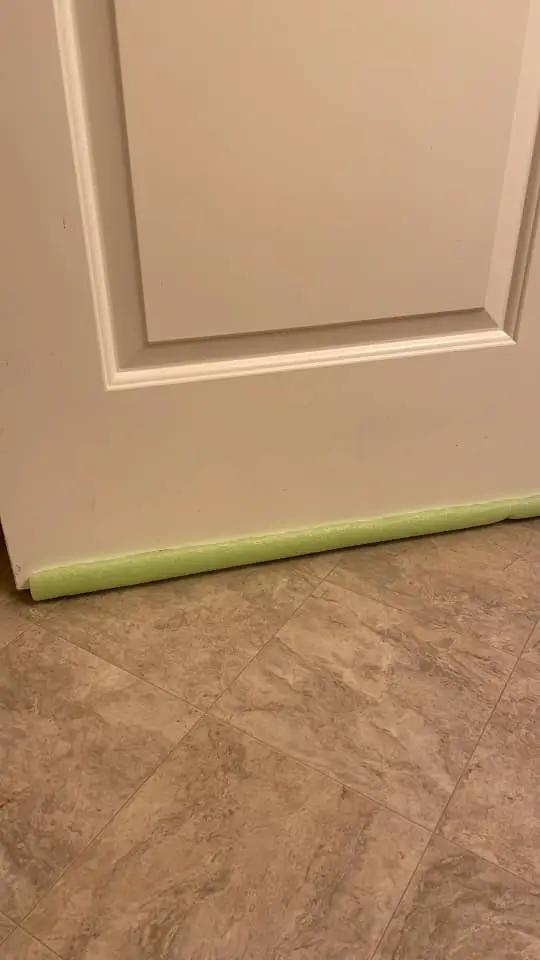Free-roaming time is an essential part of good rat husbandry and allowing your rats time to run around and explore outside of the confines of their cage is an integral part of keeping your rats healthy and happy. Free-roaming comes with a risk, though, and even the most cautious of rat parents may find that one of their rats has out-smarted their rat-proofing attempts.
Take a few deep breaths! This does not mean you are a lousy rat parent – this can happen to anyone. Rats are intelligent and crafty creatures, and most rats eventually figure out a way to out-smart their owners.
We are working against time here, so let’s get straight to the steps you need to take to find your rat within 1 hour because the sooner you start looking, the higher your chances are of finding them. So the first five steps in this article are aimed at helping you find your rat within an hour or two of them going missing.

1. Confine Your Other Rats
One missing rat is enough stress to deal with! We don’t want any of your other rats to go missing, so secure your other rats immediately.
You might want to place them in a carrier next to the cage as your lost rat will be more inclined to climb back into the familiar open cage than to get into an unfamiliar carrier.
2. Limit The Possible Search Area
As soon as you notice that your rat is no longer in the confines of your free-roaming space, close off all possible escape routes to other areas. Immediately close the door of the room your rats were roaming in and make sure they can not escape underneath the door by stuffing the opening with rolled-up towels kept in place with a heavier object such as food tins.
If there is the slightest chance that your rat may have made their way outside of the room they were initially free-roaming in, close all doors in the house so that you can eliminate spaces off the list as you continue your search and rescue mission.
Close all the windows in the house. Ensure that all cupboards that were shut before your rat went missing remain locked. Take care when closing drawers, as your rat may just be sitting behind one of the drawers.
Close air vents, the fireplace, and any possible entries to the back of cupboards or under cabinets.
3. Remove all Possible Hazards
Make sure no other pets have access to the search area. Lock any other cats or dogs outside or in a room garage or temporarily confine them to a pet carrier. As long as there is no possible way they can get to your missing rat.
Even if they are friendly or seemingly uninterested in the rats, cats and dogs are still predator species to rats and can not be trusted to be as friendly when you turn your back and when you are frightened, lost rats try to scurry away.
Remove any harmful chemicals- things like roach and ant bait stations and, if possible, remove electric wires that could be within your rat’s reach. Also, remove any packaged toxic goods they might be tempted to chew on.
Remove all house plants and water sources such as vases or fishbowls.
Take care when using any hazardous items while your rat is missing. For example, do not sit on couches before checking under the couch cushions, and do not use chairs with retractable footrests. Likewise, avoid rocking chairs to prevent the risk of your rat getting crushed between levers and gears.
Avoid using the oven if there is the slightest chance your rat might be in the kitchen and take extreme care when moving large objects while searching.
4. Lure Them With a Buffet
After securing the search area and removing all hazards, you can try luring your missing rat with a favorite treat. Bring out a bag of favorite treats. Feed a few of their favorites to the other rat(s) you secured earlier.
Rustling or shaking food containers and the smell of tasty treats are a powerful lure, and this is probably the step that brings most escapees out from hiding unless your rats are still relatively new or shy.
These are a few of the treats that have successfully brought escaping rats out from hiding in the past:
- Banana – slice the banana near the cage or in the room you think that your rat might be hiding as the act of slicing the banan will help make the aroma more potent.
- Offer pieces of chicken slightly warmed
- Store bought rat treats – whatever your rat fancies!
- Bacon – slightly warmed will make the aroma more potent
- Peanut butter (only a small amount to lick)
- Tuna
- Sugary cereal like fruit loops
- Cheese
- Food that are too large to carry off like a corn cob or whole boiled egg might help
- Plate of yogurt or baby food – again, something that they will not be able to carry off
5. Think Like a Rat
Rats are nocturnal prey animals. This means they like hiding in dark cozy places and sleeping a large part of the day. This is an essential factor to keep in mind, and I will explain why under the next heading.
Here are a few favorite hiding spots where other rat owners found their rats. Check or consider the following hiding spots:
- The underside of couches and beds- the think material used to cover the underside of couches and beds rip easily and if there is any sort of gape and your rat finds it, they will want to climb in.
- Closets and shoes – especially inside the closets and shoes of their owner.
- Inside wall skirting
- Behind or under counters or large aplyances or large furniture pieces.
- If there is any type of opening for example an inlet for water pipes or electrical pipes, your rat may try to climb in there.
- Inside dry wall- luckily most dry wall are sectioned off meaning that if your rat manages to find their way into a dry wall, they will be confined to s small section- you will however likely need to make a large opening in the dry wall in order to ,ure your rat out.
Make sure the room where you are searching is quiet and calm. This is especially important if the missing rat is particularly anxious or if the rat is still pretty new to you and the environment. For more tips on calming a stressed rat, you can look at this article.
Playing music may help as well. I am not going to go into the details of which music to play here; instead, feel free to have a look at this article.

What If I Don’t Find Them Within a Few Hours?
Sometimes rats will find a cozy hiding place and fall asleep. In this case, your attempts to lure them with food or noise will go unnoticed. Sometimes it is better to give them a few hours to become hungry before re-initiating your search and rescue attempt.
Remember to leave water sources around to prevent them from dehydrating if they are missing for more than 2 hours.
A Few More Tricks to Try:
Try putting corn starch on the floor in areas where you think they might be running around- you can then easily follow footprint. Ideal areas are hard flooring near the wall baseboards or bottom of cupboards. Rats are unlikely to run across the middle of a sizeable unfamiliar room.
If you are unsure which room your rat might be hiding in, leave treats in safe areas in different rooms and look for evidence of your rat eating or carrying the treats away.
Switch off all noise and lights and sit and listen. You might be lucky enough to hear them rustling somewhere.
If you have exceptionally shy rats or rats you are still in the process of bonding with, using traps may be an option. However, if your rat is usually very sociable or tame, I won’t spend any time waiting for a trap as they will likely just come out of hiding as soon as the order for a trap is placed.
Make sure to get humane or live trapping traps with strong-smelling bait inside. Remember to check the trap every few hours to ensure that your rat is not sitting without water for an extended period. If you don’t catch them within two days, you need to consider moving the trap to a different location.
What To Do After You Have Found Your Rat
Most rats will be very stressed and freaked out after their little adventure, especially if it was their first time or they are pretty new to you. They will also likely be starving and thirsty.
Put them back in a safe, familiar smelling spot with food and water in their cage. Check them for any injuries and monitor for any abnormalities. After they have settled down and relaxed, do a home physical check on them.
Why Do Rats Escape and Hide?
Again, this comes down to rat’s natural instinct. They are nocturnal prey animals, so running and hiding is their first reaction to new or uncertain circumstances. However, some rats will hide if they want to avoid returning to their cage- this can be because of cage mate politics or because they are bored inside their cage. So try to make the cage an enjoyable place for them- switch out toys and re-arrange the cage to keep things interesting.
You might find this article interesting – it contains a few other tips and tricks on bonding with your rats and keeping them entertained.
How Do I Prevent My Rat From Escaping Again?
Your rat’s free-roaming area must be 100% rat-proof to prevent grey-hair-causing situations in the future. Furthermore, when you allow free roaming time, you should ideally be supervising them the whole time. I give more details on how you can allow time outside of the cage in this article.
If your rat could squeeze themselves under a door, you can cut a pool noodle in half and slide it along the underside of a door to fill the gap.

It is essential to teach your rats to come when called. Luckily, there are endless internet and Youtube resources on different methods to teach your rat to come when called.
Conclusion
If this unfortunate occurrence happens to you, don’t panic. Most rat owners go through this at least a few times a year and most missing rat stories have happy endings. However, after a stressful event like this, it is imperative to place measures to prevent it from happening again. Prevention will always be better.
As a final note: if your rat went missing for some time – remember to check your shoes for rat droppings before sticking your feet in!

